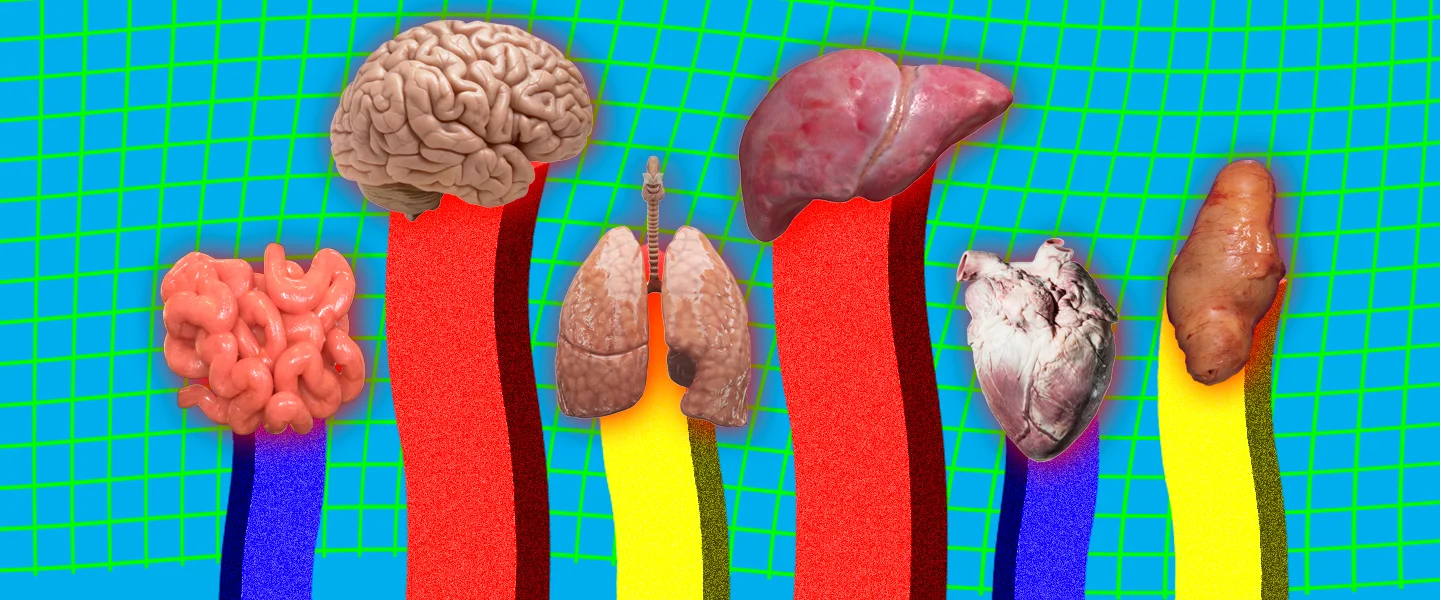
Our organs keep us alive, individually and in combination with other organs. There are about 78 organs in the human body, and each performs one or more vital functions. But do we really need all of those, or are there organs we can live without? As it turns out, we don’t exactly need all of our organs in order to survive. Let’s look at a few “unnecessary” organs, their purpose and why you can live without them.
Every organ in our bodies has a specific function. No single organ was created in vain. However, various diseases and accidents force us to abandon some without affecting our lives. For example, cancer, fibroids, gallbladder inflammation, and kidney failure all require the removal of a valuable organ when the condition warrants it. The doctor alone determines this procedure, monitoring the patient and providing them with instructions to help them and their body adapt to the new situation. There are more than ten organs that can be removed.
Can a person live without the intestines?
Our bodies can function normally without the colon, or part of it. This organ is considered an important part of the digestive process and provides us with the basic components of life. It is approximately 1.5 meters long and is responsible for the absorption of food and water, as well as the elimination of feces.
If a serious illness, such as colon cancer or Cohn’s disease, is present, the colon can be partially or completely removed if necessary. After the operation, the patient must follow a liquid diet until their digestive system recovers and adjusts to this new situation. Removing it will have no impact on the patient’s life, although it may slightly alter their digestive habits.
You can live without a colon, but this requires reconstructive surgery to connect the small intestine to the rectum. The patient may have to carry an external pouch to collect feces, which cannot normally move toward the anus.
Can a person live without a stomach?
Due to stomach disorders, such as cancers resulting from a worsening of H. pylori infection, patients sometimes have to undergo surgery to remove it completely and continue living.

When this organ is removed, the esophagus and small intestine are connected. This obviously affects the digestive process, as there is no longer a reservoir for storing food. Therefore, the patient must eat small amounts several times a day and follow a proper diet. They must also take iron and vitamin B12 supplements, as these are pre-absorbed by stomach acids. [1]
Can a person live without a pancreas?
Although the pancreas is a very important organ for the proper functioning of our body, we can live without it. This organ is responsible for absorbing nutrients from the digestive tract and also has the function of maintaining blood glucose levels. If a lung must be removed (partially or completely) due to disease, replacement hormones and pancreatic enzymes, such as insulin, will ensure its function without affecting the patient’s quality of life.
How long can a person live with one lung?
Our bodies need oxygen to survive. The lungs do this. A person can live with only one lung for life, as it will grow and increase in size, compensating for the loss of the other lung, as long as it is healthy.
If a lung is removed, quality of life may change somewhat, especially initially, until the body gets used to having one lung. It is also advisable to be particularly careful with diseases affecting the airways, as they can be more serious in people with only one lung.
What organs can you live without?
An entire organ can be removed from the body without endangering our lives. This can be due to a disease affecting those organs that threatens our health, or a desire to donate it to someone whose survival depends on them. Among these organs are: [2]
The gallbladder
This small organ is located under the liver and is responsible for transporting bile to the intestines. This occurs when the digestive system needs help breaking down fats during digestion. The gallbladder is usually removed if it contains gallstones or benign growths that could develop into cancer. Although this organ is closely related to the liver, it can be dispensed with.
The spleen
This delicate organ is located under the left ribs in the upper abdomen, next to the stomach. Most cases of spleen removal are the result of an injury. If you are in a violent accident and your ribs are damaged, the spleen will most likely be damaged by a tear in its membrane. To avoid the risk of severe internal bleeding, it is removed. This organ plays a role in the immune system and defenses. These functions are performed by the liver and some lymphatic tissues, so you can live without the spleen.
The tonsils
According to some doctors, the tonsils are of great importance as part of the immune system’s defenses and balance. While others believe that tonsils have no role after puberty, there is debate about their importance. Everyone agrees that if they cause recurrent episodes of the disease that affect the patient’s quality of life, they should be removed by surgical excision approximately 20 days after the operation. The patient can then live a normal life without any negative repercussions.
Kidneys
It is true that we could not live independently without both kidneys (we would then undergo dialysis), but since these organs do not function together but independently, it is possible to live with only one kidney. In this case, the size of one kidney would increase to be able to perform its function effectively. Therefore, special attention should be paid to this organ, keeping it hydrated and following a diet low in protein and salt. If we follow these instructions, it will continue to perform its detoxification functions properly.
Reproductive Organs
In the case of the main reproductive organs (the testes in men and the ovaries in women), even if one is removed, the other will continue to function independently and perform the work for both. In this case, it is entirely possible to have children, as these organs will continue to produce eggs and sperm without any problems. There is also a hysterectomy, which has no impact on a woman’s quality of life. The only problem is that pregnancy is impossible, just as it is with the removal of the ovaries or both testicles.
The appendix
A small organ located at the junction of the intestines and the urethra.








